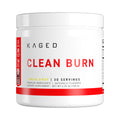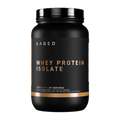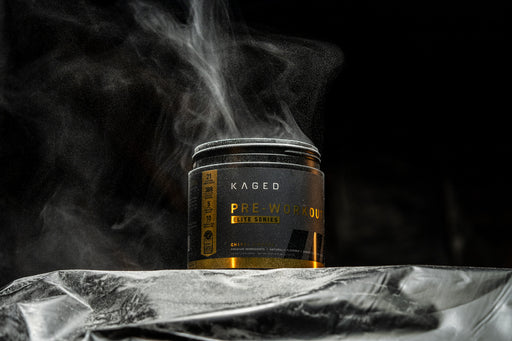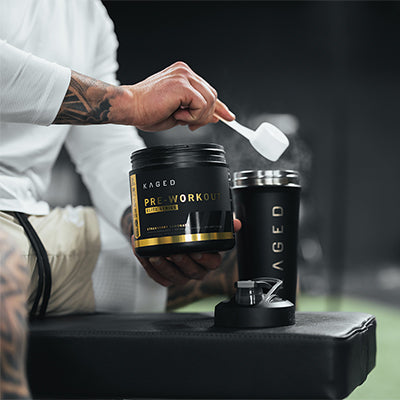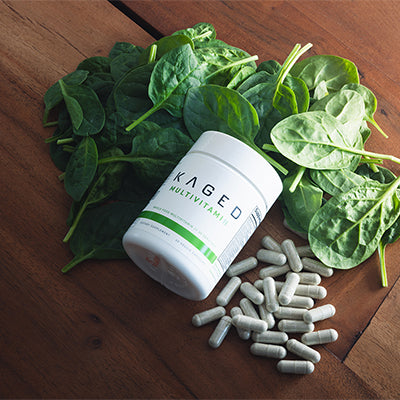If you want to build muscle, recover, or just feel your best, you need protein.
For optimal recovery and muscle building, you should aim to hit 0.6 to 1 gram per pound, according to many summaries of the latest research.
For decades, bodybuilders and athletes have operated under the principle that you should be in an “anabolic” state as much as possible. To do so, you must supply your body with a steady amount of amino acids.
The idea behind this is that going too long without protein could put you in a “catabolic” state, where your body starts breaking down muscle for energy.
Those taking muscle building and recovery to the physiological limits asked themselves: how can they be “anabolic” while they sleep?
That’s where casein protein comes in.
Unlike whey, which is rapidly digested, casein is a slow-release protein that provides a steady stream of amino acids for hours.
For athletes, it became the choice for overnight recovery, ensuring your muscles get nutrients even when you’re not eating.
In this article, we’ll break down the benefits of casein for recovery and add nuance to the old bodybuilding wisdom.
What Is Casein Protein?

Casein is a milk-derived protein that makes up about 80% of the protein in cow’s milk.
In the stomach, casein forms a gel-like substance, slowing gastric emptying and protein breakdown.
As a result, it provides a sustained supply of amino acids, making it an ideal choice for long periods without food—like when you’re sleeping.
Casein vs. Whey: The Key Difference
-
Whey protein is rapidly absorbed, making it ideal when your body needs fast-acting protein.
-
Casein protein is digested over several hours, making it better suited for sustained recovery and preventing muscle breakdown overnight.
This difference is why many athletes and bodybuilders incorporate both into their routines—using whey for immediate recovery and casein for long-lasting muscle support.
For more on this, check out our article on whey vs casein protein powder.
But what does science say about slow-digesting protein? Let’s dive into the research behind casein’s benefits.
Myth or Science-Backed: Does Casein Help You Build While You Sleep?
Let’s take this classic wisdom to task.
Many studies have examined the effects of consuming casein protein before bed.
A 2017 review by the International Society of Sports Nutrition concluded that 30-40g of casein protein before sleep increases overnight muscle protein synthesis and metabolic rate—two key factors in muscle recovery and growth.
When muscle protein synthesis is elevated, your body builds and repairs muscle tissue, countering the natural breakdown that occurs overnight.
In another study, researchers recruited 16 healthy young males and had them perform a resistance training workout in the evening. To ensure a controlled environment, all participants were provided a standardized post-workout meal containing 20g of protein and 60g of carbohydrates immediately after exercise.
30 minutes before bed, they took 40g of casein protein or a placebo.
Researchers used advanced metabolic tracers to monitor protein digestion, amino acid absorption, and muscle protein synthesis rates throughout the night.
The findings were clear:
- The casein protein was effectively digested and absorbed during sleep, leading to a steady rise in circulating amino acids that lasted through the night.
- Those who consumed casein had a 22% higher rate of muscle protein synthesis compared to the placebo group.
The title of their research says it all: “Protein ingestion before sleep improves post-exercise overnight recovery.”
This research suggests that the old-school bodybuilders and advanced athletes were on to something when they chose to take casein protein to support their overnight recovery.
Casein and Satiety: Mixed Research with Minimal Effects
Because casein protein digests slowly, many researchers and athletes have theorized that casein protein can help you stay full.
While some research does suggest it could cause a decrease in appetite the following day, other studies disagree.
A 2021 systemic review analyzed 11 studies on pre-sleep casein and appetite the next day. They determined, “no effects on metabolism or appetite when ingesting 24-48 g of casein 30 min before sleep, but data are limited, and future research is needed to clarify the relationships observed.”
In other words, it’s unclear.
Other Use Cases for Casein Protein
While casein is best known for its role in overnight recovery, its slow-digesting nature makes it useful in a few other situations as well.
1. A Mid-Day Snack
Since casein protein digests slowly, it has been suggested that it could help curb hunger and keep you full longer when consumed as a snack. However, as noted in the research on casein and satiety, the effects are inconsistent and minimal at best.
That said, if you find yourself getting hungry between meals, a casein-based shake or snack could be a useful option to help sustain energy levels and may help manage cravings.
This could be especially helpful if you’re cutting calories but still want to maintain muscle mass.
2. A High-Protein Ingredient for Recipes & Baking
One unique property of casein protein is its thick, creamy texture, making it more versatile than whey for cooking. While whey tends to become watery when mixed, casein forms a pudding-like consistency when blended with minimal liquid.
This makes it a great addition to:
-
Protein puddings & mousses – Just mix with a small amount of milk or yogurt for a thick, dessert-like snack.
-
Protein pancakes & waffles – Casein helps create a fluffier texture.
-
Baking (muffins, cookies, protein bars, etc.) – Due to its texture, it can be used in recipes that require more structure.
-
Smoothies & shakes – If you want a thicker, more satisfying shake, casein blends well into smoothies.
Want to try some casein-based recipes? Check out these delicious casein recipes from Kaged for creative ways to incorporate casein into your diet.
What Makes Kaged Casein Different?
Third-Party Testing You Can Trust
The first is the Informed-Sport Certification, which tests every batch for over 150 banned substances. This ensures that there are no banned substances, so they’re safer for athletes competing at any level.
The second is the Informed Protein Certification. This one is important because protein powders often lie on the label.
A recent survey of 61 protein supplements showed that ~25% had less protein than what the label claimed.
The Informed Protein Certification verifies that the amount of protein on our labels is what you'll get in every scoop.
Ultrafiltered 100% Micellar Casein
Kaged Casein uses 100% micellar casein, which is ultrafiltered to cut out much of the unwanted sugar (lactose), fat, and other filers.
To learn more about the different types of casein protein and why micellar casein stands out, check out this article on the types of casein protein.
Natural Flavors
Kaged Casein, like all Kaged supplements, do not use Red #40, Blue #1, or any of the other sketchy colors or flavors from artificial sources.
Despite being free from these artificial additives, Kaged Casein still tastes great—thanks to our perfected flavor systems.
Whether you're enjoying a smooth Vanilla or Chocolate Peanut Butter flavor, you'll appreciate the natural, delicious taste.
Try Casein today, whether for overnight fuel, a mid-day snack, or your favorite protein recipe.

SHOP CASEIN
*These statements have not been evaluated by the FDA. This product is not intended to diagnose, treat, cure, or prevent any disease.

